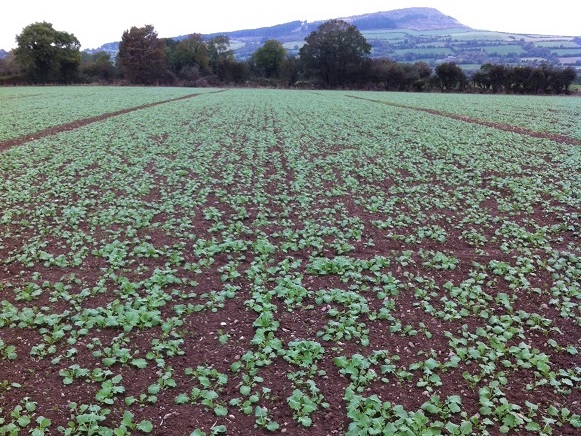United Kingdom
August 21, 2017
Farmers who are getting ready to drill oilseed rape should consider using less expensive conventional varieties to increase the seed rate and counter establishment challenges.
With flea beetle in the East, along with slugs, pigeons and unpredictable weather across the country, getting oilseed rape off to a good start can be difficult, says Clive Sutton, business development manager at DLF Seeds. “In perfect conditions, a standard seed rate for conventional varieties is 70-80 seeds/m2, with a view to establishing 40 plants per m2 as you head into the winter,” he explains.
“But with potentially devastating losses to pests, particularly flea beetle in the absence of neonicotinoid seed treatments, many farmers are looking to up the seed rate to ensure survival of sufficient plant numbers going into the winter.”
However, such a move can prove expensive, so Mr Sutton recommends considering less costly varieties which are proven to work well in your area, but may have just missed qualifying for the AHDB’s Recommended List, or are still at the candidate stage. “Varieties like Advance and Sundance are both good, solid, British-bred options with strong commercial results – but they can be obtained at considerably less cost than the market leaders. That means you can increase seed rates to 100-120 seeds/m2 to reduce establishment risks without taking a financial hit,” he adds.
When choosing varieties it’s important to consider the need to spread workloads at harvest and drilling, and whether you need to sell rapeseed early for storage and cash flow reasons. After this year’s wet summer, harvest date may be another important consideration.

According to the Met Office, summer rainfall has been on an upward trend since 1995, with four of the top 10 wettest summers on record occurring since 2008. Opting for an early maturing variety could therefore be well worthwhile, to beat the August rains. “Choosing an early variety like Advance also means there is more time for a stale seedbed so you can tackle blackgrass and other weeds before sowing winter wheat.”
Another advantage of growing a conventional variety is the ability to farm-save seed; something which is not possible with hybrid varieties, says Mr Sutton. “If you’re farm saving seed make sure your crops are clear of weeds like charlock and runch, otherwise they can multiply quite rapidly and potentially contaminate the oil.”
For more information contact Clive Sutton on 01386 791101 or e-mail forage@dlf.co.uk